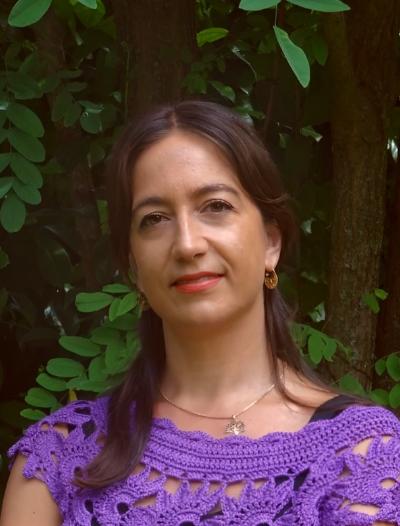You are here :
- EUTOPIA website
- Home
- Research & Innovation
- Fellowship
- SIF - Post-Doctoral Fellowships
SIF 3rd Cohort Fellows - Giustina Selvelli, University of Ljubljana

Curriculum Vitae
- Education
2012-2017: PhD in Foreign Languages, Cultures and Societies at the Ca’ Foscari University of Venice, Italy
2008-2011: Master’s degree in Anthropology, Ethnology and Ethnolinguistics at the University Ca’ Foscari of Venice, Italy.
2004-2008: Bachelor’s degree in Serbo-Croatian and German Studies at the University of Trieste, Italy.
- Experience
June 2021-December 2022: Postdoctoral Research Grant Holder, Department of Linguistics and Comparative Cultural Studies, Ca’ Foscari University of Venice, Italy.
June 2020-June 2021: Assistant Professor in Cultural Anthropology, University of Nova Gorica, Slovenia.
September 2018-September 2019: Senior Scientist and Lecturer in Multilingualism, Department of Cultural Analysis, University of Klagenfurt, Austria,
December 2017-June 2018: Erasmus Mundus Postdoctoral Fellow, Department of Geography, University of Novi Sad, Serbia.
October 2017-December 2017: Guest Lecturer, Department of Social Anthropology and History, Aegean University in Mytilene, Greece.
September 2014-June 2015: Visiting Lecturer and Researcher, Institute for Balkan and Black Sea Studies, Yildiz University in Istanbul, Turkey.
- Publications/Research achievement
• The Color of Apricots. Language Attitudes, Collective Memory and (Trans)National Identity Construction Among the Armenian Diaspora of Plovdiv., Studies on Language and Culture in Central and Eastern Europe. Berlin: Peter Lang (monograph, in press, funded by a Calouste Gulbenkian Grant).
• “Markets, ethnic cultures, and minority languages: constructing semiotic landscapes of diversity”. In Urban Anthropology Journal 23 (2), 2023 31-51.
• “Preserving and Developing Romani language on TV: Good Practices from the Vojvodina Public Broadcasting Service.” In: Linguistic Minorities in Europe Online, De Gruyter, 2022.
• “Multilingualism, Polycentrism and Exile in Angel Wagenstein’s Jewish-themed Works”, in: Jewish Literatures and Cultures in Southeastern Europe, Vienna, Böhlau - BRILL, 2021 pp. 329-344.
• “Writing a New Space: Written Expressions of Utopia and Resistance during the Gezi Park Protests in Istanbul”, Etnološka Tribina. Journal of the Croatian Ethnological Society, 46 (39), 2016: 94-110.
Research Project:
|
Minority Ecocultural Heritage Relationalities The two main case studies are the consequences of lignite mining (by the Swedish multinational Vattenfal) on Sorbian villages in the area around the town of Cottbus in Lower Lusatia, Germany, near the Polish border, and the consequences of copper mining (by the Chinese company Zijing) in Vlach-populated towns and villages around the town of Bor in eastern Serbia, near the Romanian border. By adopting both a diachronic and a synchronic perspective, I will reflect on the challenges of sociocultural change that arise from the disappearance of landscapes of ecocultural diversity, considered as the core element sustaining the complex relationalities in the collective experiences of these two minority communities. To this end, I will examine practices of resistance that include language activism, environmental justice activism, and minority rights activism, all understood as part of the same struggle for sustainable minority ecocultural landscapes. In addition, I will focus on the potentially traumatic feelings of ‘solastalgia’ experienced by members of these minorities in the face of the disappearance of their familiar native landscapes, and the consequences for their well-being, including the preservation of their endangered languages and the broader implications related to migration and urbanization processes. |


